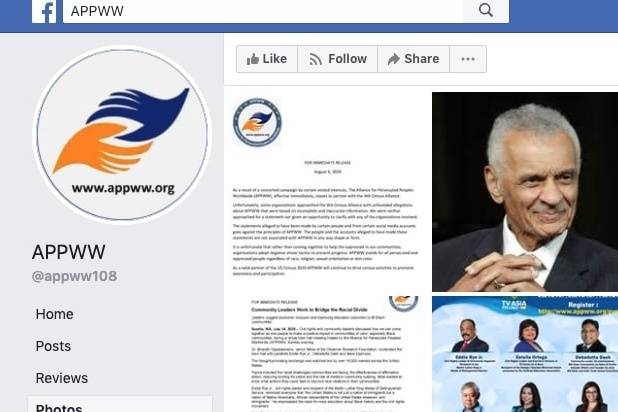A recently formed organization has come under fire by more than 100 King County human rights groups for anti-Muslim statements made by current and former board members.
The Alliance for Persecuted Peoples World Wide (APPWW) was formed earlier this year, and after several of the board members spoke at Seattle City Council meetings. The city council was discussing passing a resolution to condemn legislation in India that makes it harder for Muslims to become citizens than those of other faiths. Board members of APPWW were asking the Seattle City Council to not condemn the Indian legislation.
The group has since began addressing Redmond’s City Council, and hosting events. It also planned an event called Bridging the Racial Divide in July, which was slated to feature panelists from several area community organizations. But many dropped out beforehand, after seeing statements posted to social media by APPWW board members.
In a letter, the APPWW was called out by more than 100 other organizations, including the Coalition of Seattle Indian Americans, El Centro de la Raza, OneAmerica, Black Lives Matter Seattle-King County, Indivisible Eastside, for comments made by its board members.
Some of these comments were written by Bhakti Joshi, and include statements like “India and US have to come together against Islam. It’s abt time educated ppl realise the horror of Islam” and “Entire global terror industry is on basis of turning whole land into Islam.”
She also called Seattle City Council member Kshama Sawant, who is Indian-American, a “traitor.” Sawant sponsored the Seattle resolution condemning the citizenship restrictions in India.
The letter also alleges that APPWW board member Archana Sunil wrote on a since-deleted Twitter account that the Bernie Sanders presidential campaign shouldn’t hire “Islamist Ikhwanis-Pak military stooges.”
For Aneelah Afzali, the executive director of the American Muslim Empowerment Network, these comments illustrate a clear anti-Muslim bias within the APPWW.
“What is really at issue here, the ask made by over 300 community members… is really about condemning hate,” Afzali said.
The statements from APPWW members also worried Deepa Sivarajan, a representative of the Coalition of Seattle Indian-Americans. Sivarajan believes the organization was formed to protest the Seattle resolution, and has grown since.
Despite working in a racial justice space, Sivarajan isn’t convinced the group has everyone’s best interests in mind. Many immigrants from South Asia who have come to the U.S. in recent years come from relatively privileged backgrounds, both in terms of class and caste, Sivarajan said. Anti-Muslim statements impact not only Muslims here, but other immigrants who aren’t privileged, they said.
During a phone interview, a board member for the APPWW said that in May, they became aware of the statements two other board members had made on social media. One of the members was consequently removed from the organization.
They also condemned statements made by Joshi as hurtful, and out of line with the current organization’s goals.
“We repudiate that, we don’t stand by that, and when this came to our attention in May, the person who made the bulk of those messages was removed,” the spokesperson said.
The spokesperson said the APPWW was formed to highlight the plight of oppressed groups like Rohingya Muslims or Hindu Pundits. The organization’s board is seated by immigrants of color, the spokesperson said.
But Sivarajan would like to see more from the organization.
“If they’re going to continue as a group, they need to think about what they really stand for,” Sivarajan said.


